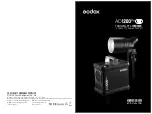
- Firstly, make a sketch of the desired pattern on your workpiece with a pencil or alternatively apply a ready-made template to the
workpiece.
- Types of wood with smooth surfaces are particularly suitable for marking.
- When marking wood with a rough surface, be aware that it can be difficult to guide the tip along the line required. In this case the
surface should be sanded first.
- Connect the plug (9) to a mains socket and rest the marking iron (1) on the supplied stand (7) until the working temperature is reached
after approximately two minutes.
- Begin by testing the device with the ‘universal’ tip (factory fitted).
- The long edge is suitable for marking thin lines as well as wider and deeper lines.
- Use the point to mark dotted patterns or lettering.
- The tip’s angled surface is particularly suitable for shadow marking.
- A wide variety of patterns can be created with the marking tips and stamps supplied.
- Use a pair of pliers (e.g.. combination pliers) to change tips or stamps.
- A sooty deposit can build up on the tip or the stamp during use. Use fine sandpaper to remove the deposits and to keep the tips
clean. A clean tip is essential for precise and accurate work.
- The knife blade is suitable for cutting foam or for melting the ends of ropes or cords made of nylon or other synthetic materials.
- As the tips are made of brass, a relatively soft material, we recommend that you wait until these have cooled down completely
before removing or replacing them.
Please note that the threaded ends of the tips are easily damaged when hot. If the tips are damaged, they may be difficult to fit to
the device.
WORKING WITH THE MACHINE
After a certain amount of time sooty deposits can build up on the tips (for example the marking stamps - part 3). To be able to work
precisely and accurately, remove the deposits with fine sand paper.
This symbol indicates that this product may not be disposed of together with domestic waste in compliance with the
(2002/96/EC) Regulation pertaining to waste electrical and electronic devices (WEEE). This product must be handed in at
an designated collection point. This can occur, for example, by returning it when a similar product is purchased or by handing
it in at an authorised collecting point for the recycling of waste electrical and electronic equipment. Owing to potentially
hazardous substances that are frequently contained in waste electronic equipment, incorrect handling of waste equipment
may have a negative impact on the environment and on the health of human beings. By disposing of this product correctly,
you are also contributing towards an efficient use of natural resources. Information on collecting points for waste equipment
can be obtained from your local authority, the public waste disposal authority, an authorised institution for the disposal of
waste electrical and electronic equipment or the waste collection services.
MAINTENANCE
MAINTENANCE
RECYCLING
REPLACING THE MAINS CABLE
If the mains cable (9) becomes damaged it may only be replaced with genuine replacement mains cable available from the
manufacturer or the manufacturer’s customer service representative. Mains cables may only be replaced by the manufacturer, an
authorised service centre or a similarly qualified person.
Caution!
The mains cable is sensitive to heat. Ensure that the cable does not come into contact with a hot part of the device or
a tip - for example a marking stamp (3). Damaged mains cables may only be replaced with a genuine replacement mains
cable, available from the manufacturer or the manufacture’s customer service representative.
Mains cables may only be replaced by the manufacturer, an authorised service centre or a simililarly qualified person.
Caution!
- Allow the tips to cool down completely before removal or exchange. Danger of burns!
- To prevent the risk of fire, always rest the device on the stand provided or on a similar non-flammable surface.
- Always disconnect the device from the mains after finishing work. Allow the device to cool down to room temperature
before you put it away.
- Keep children out of the area.
Caution!
- To prevent the risk of fire, always rest the device on the stand provided or on a similar non-flammable surface.
- Always disconnect the device from the mains after finishing work. Allow the device to cool down to room temperature
you put it away.
- Keep children out of the area.
Summary of Contents for 030991
Page 55: ......










































